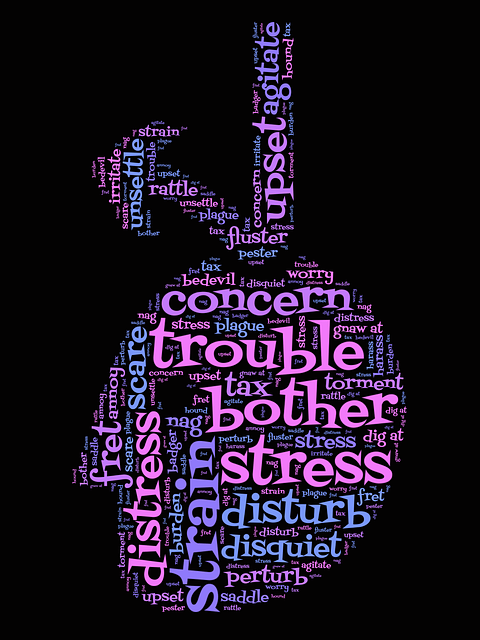Archive for May 2016
Cervicogenic Headache
Cervicogenic headaches are among the most unusual headaches because the pain is not originating in the head. This happens to make them the hardest to diagnose. But for people who have experienced trauma to the neck, back or head at any point in their lifetime, cervicogenic headaches are worth considering as a root cause if you suffer from chronic headaches.
How it works:
Whether because of trauma, repetitive stress or poor posture, nerves in the neck are impinged due to misalignment of the spine. These nerves are sending signals which travel up the spinal cord and merge with nerves in the brain. When the pain is manifest from nerves in the brain rather than the neck, a headache is the logical outcome. The idea that pain can manifest in a place different from where it originates is called reference: nerves in the neck are referring pain to nerves in the brain. Cervicogenic headaches are often misdiagnosed unless the neck is examined for misalignment. There are also over 20 muscles in the upper back and cervical region that can refer pain to the head if they are tightened or strained.
Regardless of where headaches begin and end, it is important to approach them with the right attitude: headaches are not just a part of life. They are a clear signal that something is wrong, that a dysfunction exists within your body. Diet, exercise and nutrition are great ways to manage your symptoms, but sometimes it takes a little more research and treatment. That is where we come in: call our office in Houston at (713) 862-2440 to schedule an appointment today.
Dr. Randall Holmes, D.C.
Headaches and Sleeping
For many people, getting to sleep, or staying asleep is difficult because of headaches and, by the opposite token, lack of sleep creates headaches during the day time. Sleep is a key ingredient to overall wellness, and as such, the pursuit of restful, restorative sleep is a primary pursuit at Holmes Chiropractic. How can you begin to function for a day when your restorative hours were racked by headache and stress? It sets a tone for your life that becomes hard to manage.
As we see it, nerves exiting from the cervical spine are involved in regulating the limbic system, which is responsible for mood. A nerve interference at this level could cause fluctuations in happiness, and lead to stress, anxiety and depression. Furthermore, a nerve that is being pressed by a misaligned vertebrae could be causing pain that is referring to your head. As muscle spasms begin to accrue in the shoulders and neck, the problem becomes muddled. It is not unbelievable that a cervical subluxation could be causing your headaches that stop you from sleeping. And it is proven that not sleeping causes headaches, whether from anxiety or exhaustion.
At our office in Houston, we believe that together we can make positive impacts on your sleep health. We take everything into consideration: sleep hygiene, nutrition, ergonomics and posture, as well as chiropractic considerations that treat the spine to ensure your nerves are functioning properly. Call our office to schedule an appointment today and start sleeping right to reduce headaches.
Dr. Randall Holmes, D.C.
Posture Headache
If someone were to take a picture of you right now, as you sat at the computer, how would you look? Would you be upright in your chair, with a healthy lordotic curve, shoulders back and face straight forward. Or would you be slumped forward, neck cricked downward, with tight shoulders and a rounded back? For many people, it is option two, and it’s not doing their head any favors. For people who come home from a grueling day at the office with a pounding headache, posture could be your downfall.
Here’s how it works: after hours of mental exertion, any awareness of posture has gone out the window. We have succumbed to the malaise of work and our muscles are now suffering. The chin starts moving toward the screen, as though by magnetization, and the head follows, rounding the back and scrunching shoulders in the process. Now the weight of your head, no longer at the top of a straight spine, is magnified, creating an imbalance that requires shoulder and neck muscles to compensate. This is how these muscles feel tight or strained. Often times, muscle spasms will accompany this position, and the pain is referred to the head, leaving you with a headache.
Clearly, this is not something you want to do to yourself. There are many intangible factors which create headaches. It is in all of our best interest to exercise the powers in our control to limit headache symptoms. Posture is one of the most effective, least used ways to influence your health: unlock its power by calling our office in Houston today at (713) 862-2440.
Dr. Randall Holmes, D.C.
Everyday Stress and Headaches
What is a regular, every-day headache? They are the headaches for which we quickly take aspirin in the hopes of muting the pain, allowing the causative condition to linger. They are insidious and multi-faceted: perhaps you did not drink enough water today? Or not enough food. Too much computer time could have done it, but it is also allergy season. We write them off as being just part of life; a manifestation of internal and external factors that cannot really be helped. If we are willing to accept this, could it be so far fetched that a misalignment in the spine is to blame?
At Holmes Chiropractic, we believe in finding the root cause rather than treating the surface symptom. Modern lives leave us at the mercy of myriad stressors, and our bodies naturally tighten in a protective response. Unfortunately, this tightening becomes chronic and prolonged periods of tightness will leave muscles strained and vertebrae misaligned. We often see people whose shoulders and necks are in such a state of tension that it is no wonder pain is being referred up into the head.
We treat you with a holistic approach, addressing the headaches by relieving tension and misalignment in the cervical region. Massage releases endorphins that have natural stress and pain fighting properties. Do not let tension headaches hold on to your life any longer: call our office in Houston at (713) 862-2440 to see how we can turn daily headaches into a thing of the past.
Dr. Randall Holmes, D.C.
Sleeping with Good Form
If only sleeping was simple. In a globalized world where stress seems to grow by the day, sleep is becoming harder to come by: falling asleep and staying asleep are problems entirely of their own, but what is happening while you sleep? The position your body is in can determine whether you wake up feeling refreshed or refracted, rested and rewarded or wrinkled and restless. Today, a topic that is hard to control, but has large lasting ramifications on your body: sleep posture.
- Sleep posture is usually determined by what feels most comfortable: for back and side sleepers, this is OK, but for stomach sleepers this is unfortunate. Have you ever heard that sleeping on your stomach is bad for you? Unfortunately, it’s true. Besides making an impact on snoring and some sleep apnea cases, belly-down is no boon for healthy sleeping. As you sleep, the natural curve of the spine is flattening. If this is the only way you can fall asleep, put a pillow under your lower abdomen to fight the flattening effect.
- Back sleepers: This is the best position for your body to sleep as the back, neck and head remain in alignment. Sleep ergonomics come into play here however: sleeping with a pillow that cricks your neck up or down can leave you stiff and out of sorts in the morning and a bed that does not sag in the middle is important.
- Side sleepers: you are in the majority. This is the most comfortable position for people to fall asleep and wake up and it is not necessarily damaging. A downside of sleeping on the side is the amount of weight that is put on the shoulders and inferior arm. Believe it or not, the side you usually sleeps on has an impact on your health. For example, sleeping on the right side can contribute to heartburn while sleeping on the left side can put pressure on organs like the liver and lungs.
Sleeping is far from simple. But there are minor adjustments you can make to your sleep set up that will help you reap the most benefit out of your restive period. Call our office in Houston at 713-862-2440 to schedule an appointment.
Dr. Randall Holmes, D.C.
Nutrition for Sleeping
Sleep deficiencies are often correlated with poor diet patterns.
For example, eating too little during the day leads to eating too much at night. Conversely, eating too much during the day may leave your stomach growling as you attempt to sleep. The paradox exists: It is hard to digest a heavy meal while lying in bed, but sleeping is difficult on an empty stomach. Space out your meals so that a balanced level of nutrition is flowing into the body throughout the day.
Reduce sugar/caffeine and alcohol. Sugar especially leaves your brain at the mercy of blood sugar swings that make you hungry, which is not what you want when trying to sleep. Alcohol and restful sleep is a cocktail that was never meant to be: while a healthy buzz may induce sleep, it disrupts REM sleep, leaving you drowsy the next day.
Clean fats and proteins are good things to eat at night because your body will have a stable flow of energy that does not bend to the whim of blood sugar. Protein helps your muscles and immune system repair during deep sleep.
Before bed: something soothing
- A cup of warmmilk for vitamin b and tryptophan effects
- 6 oz of hot water and a teaspoon of honey
- A cup of chamomile tea.
Do not sabotage your sleep by eating poorly. Call our office in Houston at 713-862-2440 to schedule an appointment and find out how we can use nutrition to get you a better night’s sleep.
Dr. Randall Holmes, D.C.




